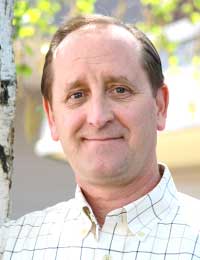
Jim Bair, USApple president
Jim Bair, president of the U.S. Apple Association, visited Washington State this week for the first time since taking over the helm of the organization from Nancy Foster at the beginning of this year.
Bair, who grew up on a row crop and lifestock farm in Iowa, has 30 years of experience in food and agriculture association management, mainly in the grains industry. He spent his first few months at USApple overhauling its financial management system to make it more efficient.
In the process, he identified a need to seek more support from allied industry businesses such as apple processors.
“Having grown up on a farm, I understand how precious grower dollars are, so it’s an opportunity for me to be very transparent and make it clear that grower dollars are being stewarded carefully and being invested wisely,” he said.
That done, he booked a ticket to Washington State whose growers provide about $958,000 annually—more than half of the association’s funding—and got down to his next priority which is to get out and meet growers, and listen.
“This trip is about listening and hearing what rank and file growers and apple leaders think are their priorities,” he said, while visiting with industry representatives in Wenatchee on April 30.
USApple’s mission is to advocate for the U.S. apple industry partners on national issues in order to promote the profitable production and marketing of apple and apple products.
Among its functions are to represent the entire industry on legislative and regulatory issues; to increase demand for apples, which it does partly by funding research on the health benefits of eating apples; and to provide information on industry matters, including national apple storage data.
Bair said he hopes to forge coalitions with other agricultural groups that have similar interests in order to be more effective in legislative issues, such as immigration reform.
“If we can reach out and build an effective coalition, that’s just smart business,” he said. “That’s doing more with less.”
He also hopes to join coalitions within the tree fruit industry. For example, Northwest Horticultural Council staff members have been representing industry interests relating to the proposed Food Safety Modernization Act.
Bair thinks USApple and the Hort Council can have a symbiotic relationship with the Hort Association providing technical expertise while USApple has an on-the-ground presence in Washington D.C.
“I’m a firm believer that there’s no limit to what can be achieved if you’re not worried about who gets the credit,” he said.
During his first year at USApple, he will be looking for further efficiencies internally and will make sure that the staff and their resources are lined up with the association’s mission.
“I’m somewhat new to the apple industry, so I have a fresh pair of eyes,” he said. “I’m less interested in what’s happened in the past and more interested in what’s happening now and in the future.”
One of the big issues on the horizon is the deregulation of the genetically modified Arctic apple from Canada. In the past, Bair has been critical of the U.S. regulatory process for approving genetically modified crops, calling it “ineffective.”
“I think our job is to be as calming and reassuring as we can and tell consumers that there are going to be many, many varieties of apples available for 365 days a year that are never going to be genetically modified,” he said. “Providing information so people can make informed choices is going to be a really important task for us going forward.”

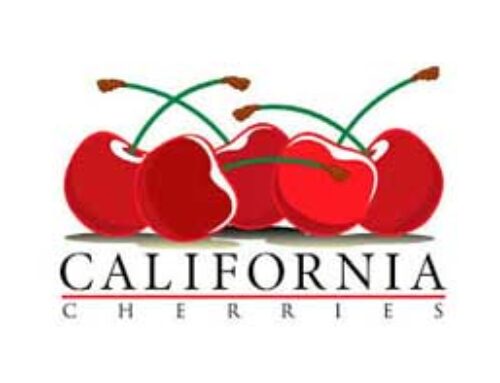
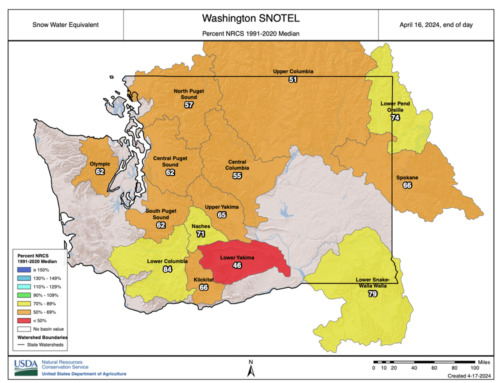
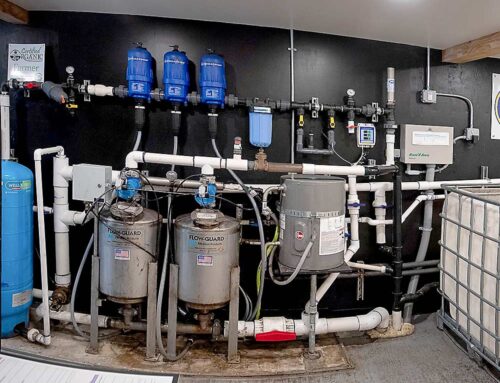
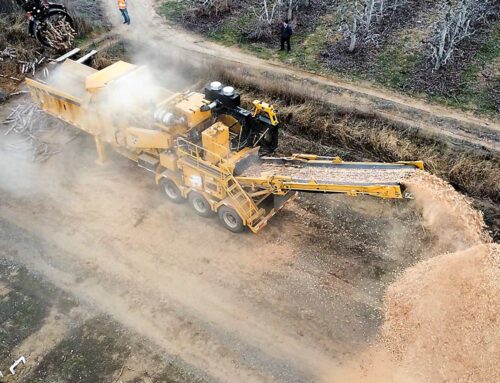
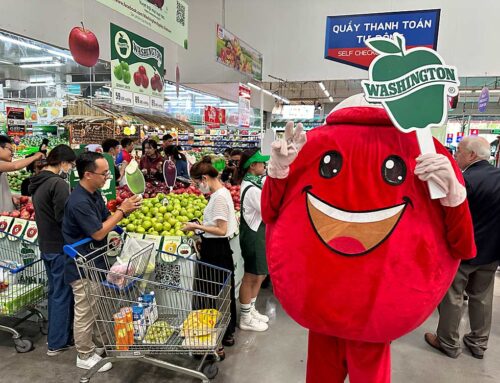
Leave A Comment